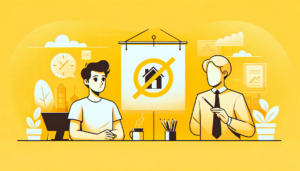How should business leaders manage their mental health?
- 8 Min Read
Commonly business leaders are asked what they are doing to manage the mental health of their workforce, however how do they manage their own? EJ Flynn, MD, The Supper Club, delves deeper into this subject.
- Author: EJ Flynn
- Date published: Jul 4, 2019
- Categories

Running a business is a stressful task. It’s no wonder that a 2015 study found that 49% of entrepreneurs reported struggling with a mental health condition.
We spoke to some of our members who shared the struggles they have faced and how they have overcome them. From imposter syndrome to depression and burnout. Being this honest is no small fete, so thank you to them. We hope you find their frankness helpful. If you do, please share with your network to include more people in the discussion.
Alex Price, Founder at 93digital & 93x on imposter syndrome.
I started my freelance business at 16 which then turned into an agency at 21. Being young in business has led to regular feelings of imposter syndrome.
Digital agencies are service led businesses with complex sales processes that are heavily reliant on credibility, reputation and trust. There were definitely times when walking into a board room of 10 stakeholders, on my own at 23 years old to pitch for a £100k project, was intimidating and it felt like being young would hold me back.
I remember really struggling the most when I was still living at home. There were mornings where my Dad would ask me to load the dishwasher on my way out the door. 30 minutes later I would be having a serious conversation with my ‘CEO’ hat on. Switching between these personas was really tough and definitely held back my performance at work in the early days.
I’m 26 now and still regularly get asked in new business meetings if I’m an account manager at the agency and if I enjoy working there, simply because I look young. Fortunately, now I find it quite funny. When I explain the agency is owned and operated by myself as the only shareholder, there are sometimes surprised looks. But I’ve learned that in most cases my story is now my biggest advantage and the thing that people really connect with.
What would you recommend to others in a similar position?
Everyone is where they are for good reason, and in most cases it’s just their own mind holding them back.
I personally found that exercising regularly and meditating gave me opportunities to reflect on this, greater clarity of thought and an overall confidence that helped with my own self belief.
Surrounding myself with good people has also been important. I’m a big believer in only spending time with people that have good energy and collectively you can all boost each other.
Sometimes all you need is to be told that you’ve done a good job – being a sole founder can be very lonely, and you don’t have a line manager to give you nice feedback! I still regularly work with all kinds of mentors, advisors and coaches, and invest a lot in my own development.
I also now try to give up my time to help people starting out in the industry, and have found that being able to pass on my experience and give others the confidence they need to start a business is rewarding but also helps with my own imposter syndrome.
Don’t let imposter syndrome hold you back. Take all the things that you feel hold you back, flip them on their head or reframe them, and take ownership of them in a way that positions them as the things that actually make you unique.
Simon Douglass, Founder at Curated on coping with depression.
I’ve suffered from mild depression for a long time – as long as I can remember (10 years), certainly long before I started Curated 5 years ago. It’s mainly related to inconsistent low mood – one day I’d be up, one day I’d be down – there would often be no rhyme or reason for this, but it could be accentuated by problems at work which were not easily fixable.
I’ve been in therapy (psychoanalysis) for over 9 years which has helped me to compartmentalise some of the problems. The main problem is and has always been my inability to distinguish between stressful tasks and deal with each one in turn. Rather I bundle them all together and things become completely unmanageable and I can barely exist in a work environment on some days.
When this happens, I actually don’t come into work. I work from home and try to avoid people. This doesn’t work, and ends up being counter productive. I sleep, I eat badly, and generally feel more separate from the business than ever, and then the imposter syndrome takes hold – I’m not good enough to run a business, I have no idea what I am doing or how I got here, and how am I going to deal with all of these business issues.
As well as weekly therapy sessions, I also take anti-depressants. I’ve had a love / hate relationship with them for about 4 years, coming off them twice in the process. I would recommend them as a mood stabiliser for consistency. They give me a lot of lucidity but can often make me rather passive which can come across as if I’m disconnected or don’t care, and also I can sometimes feel the stress underneath but can’t always access it or understand what it relates to or what it means.
What would you recommend to others in a similar position?
I don’t recommend antidepressants at all. Whilst the lucidity is excellent, the ambivalence is not
I do recommend therapy though. It helps that my wife is a trained psychologist and was able to help recommend me the right route to take. I visited a website and booked an assessment to see if therapy would benefit me. In that 50 min meeting 9 years ago I was able to start connecting with what was going on in my head, and over the subsequent 9 years, try to figure out how to make things better. I’m still going every week and find it beneficial – running a business and going home to a wife and two very small children is tough, so I appreciate the break, and I get to lie down.
And I would recommend facing the demons – by not coming into the office, I was just making things worse. Easier said than done to get out of bed and face the day but by coming in and confronting the issues feels a whole. lot. better and all of the imposter doubts clouding my mind when I’m sat on the sofa at home disappear quickly into the ether!
Dan Kirby, CEO Techdept & creator Getahead Festival on recovering from burnout.
In 2006 I went on holiday to Ibiza and came back with a chest cold, which was actually pneumonia. Turned out I’d burnt out.
Outwardly my life looked like a runaway success. I was an early 30-something with a fast-growing business, fabulous partner, healthy daughter (and another on the way), cute house in the country, exotic holidays. I wasn’t burning the candle at both ends, I was blow-torching it:
● Workload: intense
● Alcohol & caffeine intake: high
● Diet: bad
● Fitness regime: zero
● Relationships: suffering
● Emotional state: high drama
I often “had a cold”. Was always “tired”. Or “needed a holiday”. So I drank Lemsip, took afternoon naps and flew to foreign resorts. None of which fixed the problem. I reached rock bottom just in time for the birth of my second daughter.
You wouldn’t have known I was struggling. I kept up a great shop front, I didn’t even admit it to myself. If you asked me if I could cope, the answer would be “of course”.
Fast forward, I’ve been diagnosed with depression and have won the battle to create balance in my life (through trial and error. But the process started in 2007, and we’re now in 2019. That’s a long time to limp along.
That’s why I created a not-for-profit venture called Getahead. In 2018 we made a 25 year commitment to help a billion people “get ahead without burning out” (like I did). Getahead Festival (our launch event) is back for its second year in London on June 14th 2019: www.getahead.life
What would you recommend to others in a similar position?
The best thing you can do to avoid burnout, unnecessary drama and stress is to better understand your brain.
Most people see themselves as “The CEO” of their mind. You’re logical, rational, in control of your consciousness. But you’re not. You try to budget, yet buy the new shoes. Your subconscious decides, then you back-pedal a rationale. I highly recommend The Chimp Paradox by Steve Peters, and meditation is a great aid for better ‘observing’ your thoughts (I use Headspace and The Waking Up app).
This isn’t some woo-woo stuff for corporate HR departments. Ray Dalio is the CEO of the world’s most successful hedge fund, and talks of “the two you’s”:
“These lower-level selves…want to fight even when their higher-level selves want to figure things out. This is very confusing because you and the people you are dealing with typically don’t even know that these lower level beasts exist, never mind that they are trying to hijack everyone’s behaviour”
Work on your mindset (and therefore mental health) like you would your physical health.







